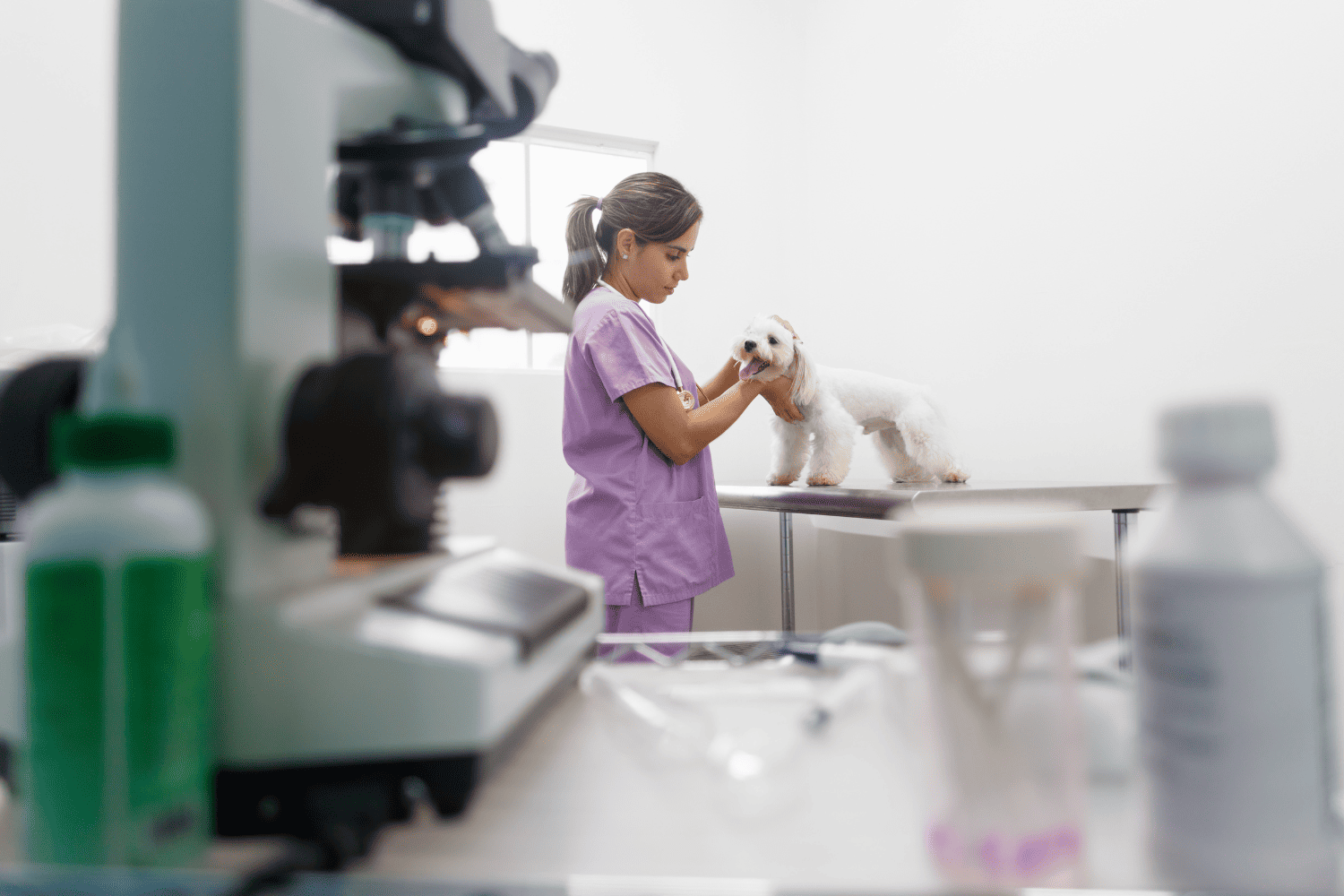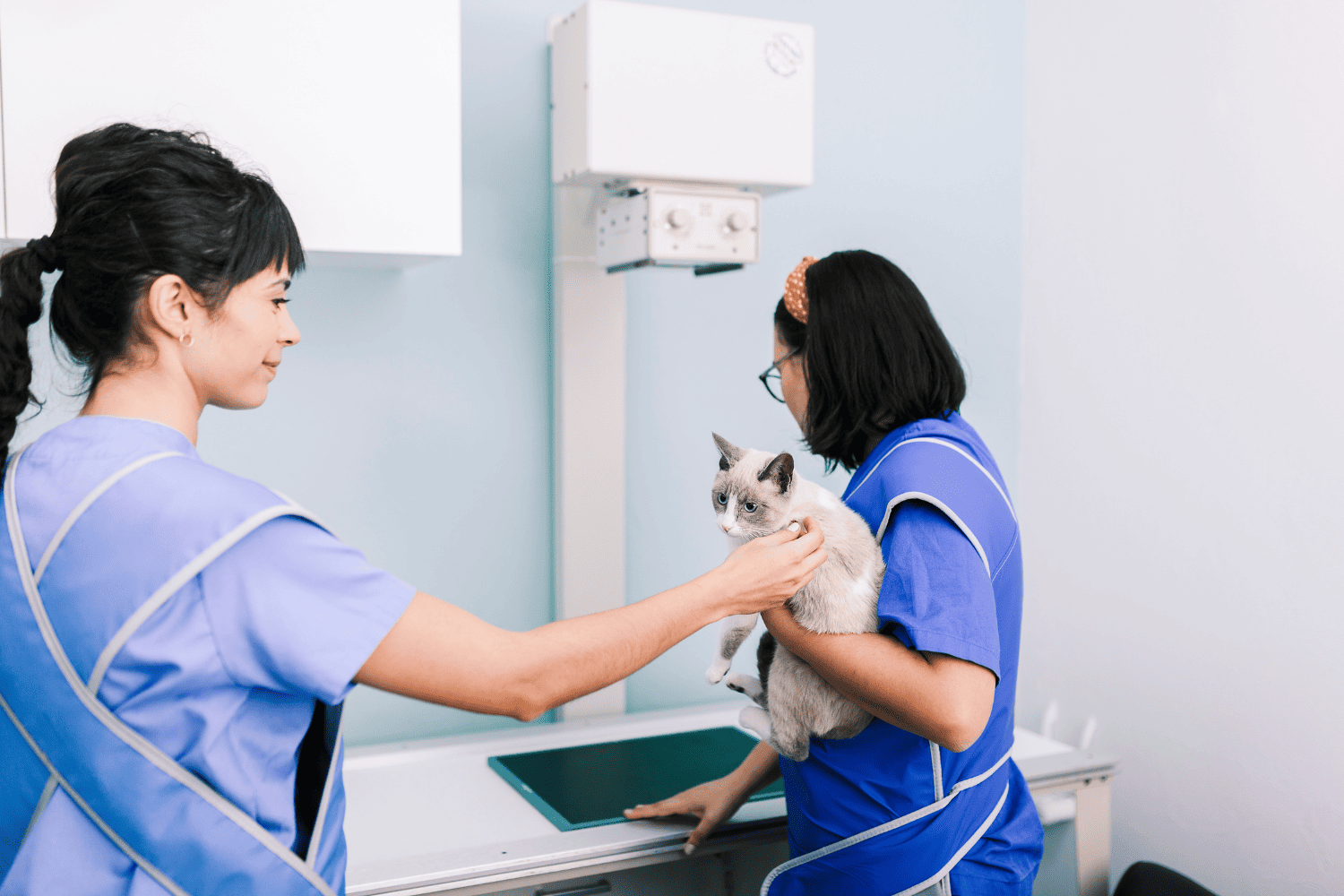Pet Diagnostics in Madison, Maine
At Madison Animal Hospital, we offer advanced pet diagnostics—including in-house lab work, digital radiology, and ultrasound—to help detect illness early and guide timely treatment.

Fast, Accurate Answers for Better Pet Care
When your pet isn’t feeling well, or when we’re screening for early signs of disease, diagnostic testing gives us a detailed look at what’s happening inside the body. At Madison Animal Hospital, our in-house diagnostic tools help us provide quicker answers, faster treatment decisions, and peace of mind for pet parents.
We offer a full range of in-house bloodwork, urinalysis, and fecal testing, along with digital pet X-rays and ultrasound imaging. These tools help us diagnose illness, monitor chronic conditions, assess injury, and support your pet’s overall health at every stage of life.
Whether your pet is sick or testing is part of a wellness screening, our on-site diagnostic tools give us fast, accurate results when they matter most.
In-House Laboratory Testing
Our on-site veterinary lab allows us to run various tests without needing to send samples out—saving time and reducing stress for both pets and owners.
Common In-House Tests Include:
- Blood Chemistry Panels
Liver enzymes, kidney function, pancreas, glucose, and electrolytes - Complete Blood Counts (CBC)
Screens for anemia, infection, and immune disorders - Thyroid and Hormone Testing
- Urinalysis
Checks for infection, kidney health, diabetes, and more - Fecal Testing
Detects intestinal parasites - Heartworm Testing
- Tick-Borne Disease Screening
Lyme, Ehrlichia, Anaplasma - FeLV/FIV (for cats)
- Parvovirus Testing (for dogs)
When specialized tests are needed, we work with trusted external labs and handle the coordination for you.


Veterinary Radiology (Pet X-Rays)
Radiographs, or X-rays, use electromagnetic waves to capture detailed images of your pet’s bones and internal organs. They’re especially useful for identifying fractures, joint issues, foreign objects, masses, and dental disease.
We Offer:
- High-resolution digital X-rays
- Dental X-rays
- Orthopedic and contrast studies
Some radiographs require your pet to remain completely still. In these cases, mild sedation or anesthesia may be used to ensure safety and clarity. Results are available quickly, and we’ll go over everything with you in detail.
Pet Ultrasound Imaging
Ultrasound uses high-frequency sound waves to create real-time images of your pet’s internal organs. This safe, non-invasive technique is especially helpful for diagnosing conditions related to the abdomen, heart, and reproductive system.
Common Uses for Ultrasound:
- Abdominal organ evaluation (liver, kidneys, stomach, spleen, etc.)
- Detection of masses or blockages
- Pregnancy monitoring
- Echocardiograms (heart ultrasound)
Ultrasounds are painless and don’t involve radiation, but pets may need light sedation to remain still during the procedure.

Because Answers Shouldn’t Have to Wait
When your pet isn’t feeling well, you deserve fast, reliable answers. Our in-house diagnostics help us quickly diagnose and treat your pet, so they can start feeling like themselves again.
